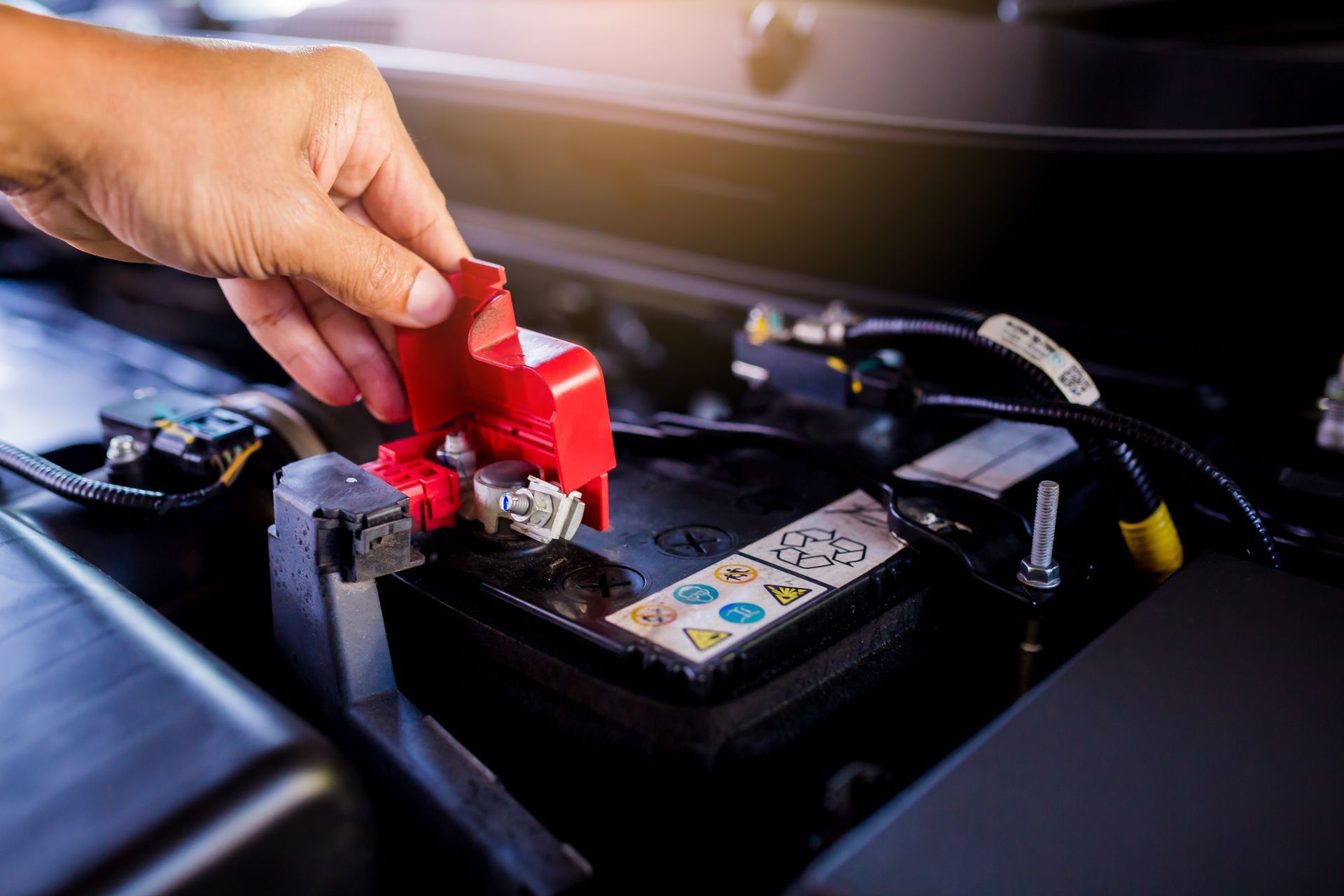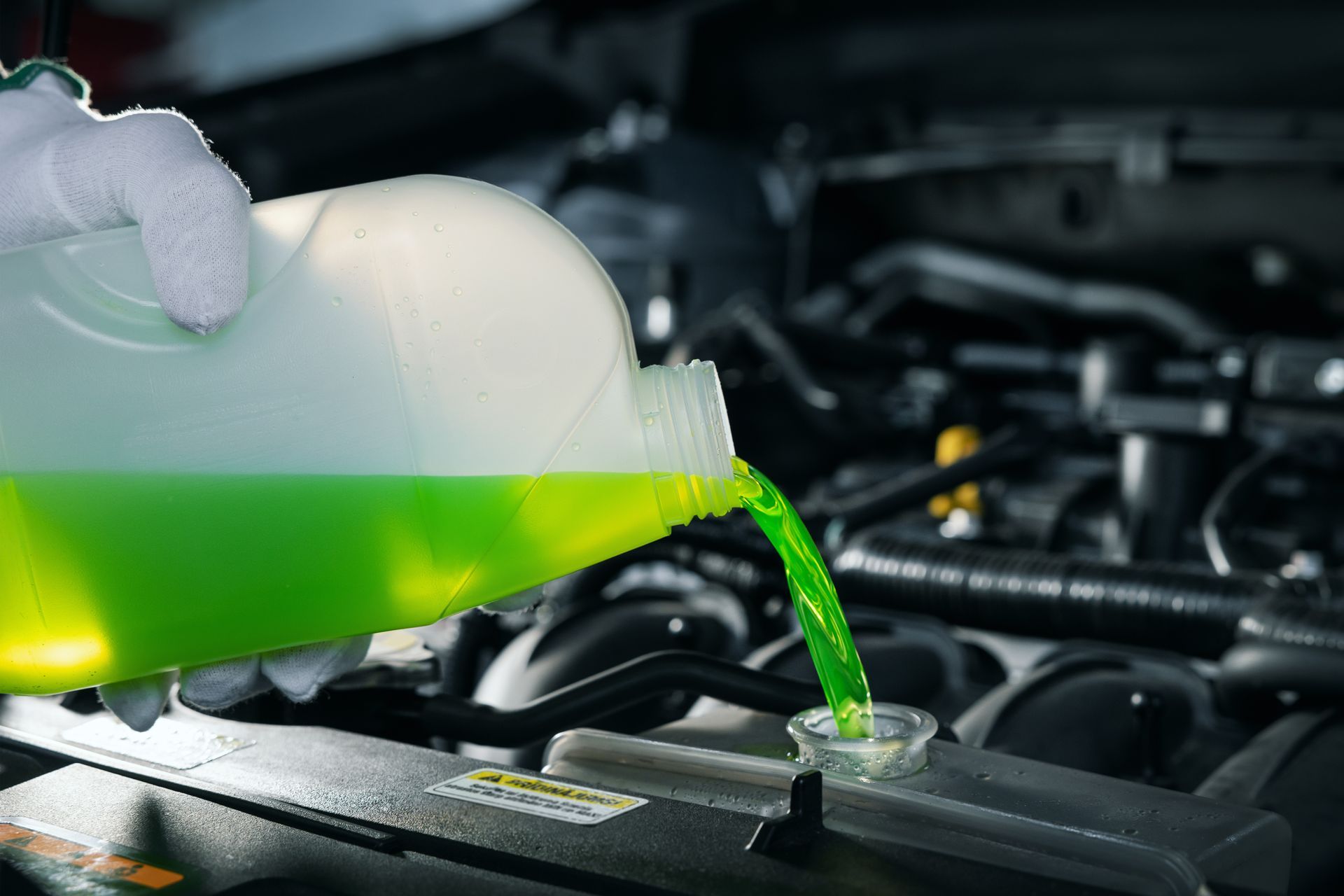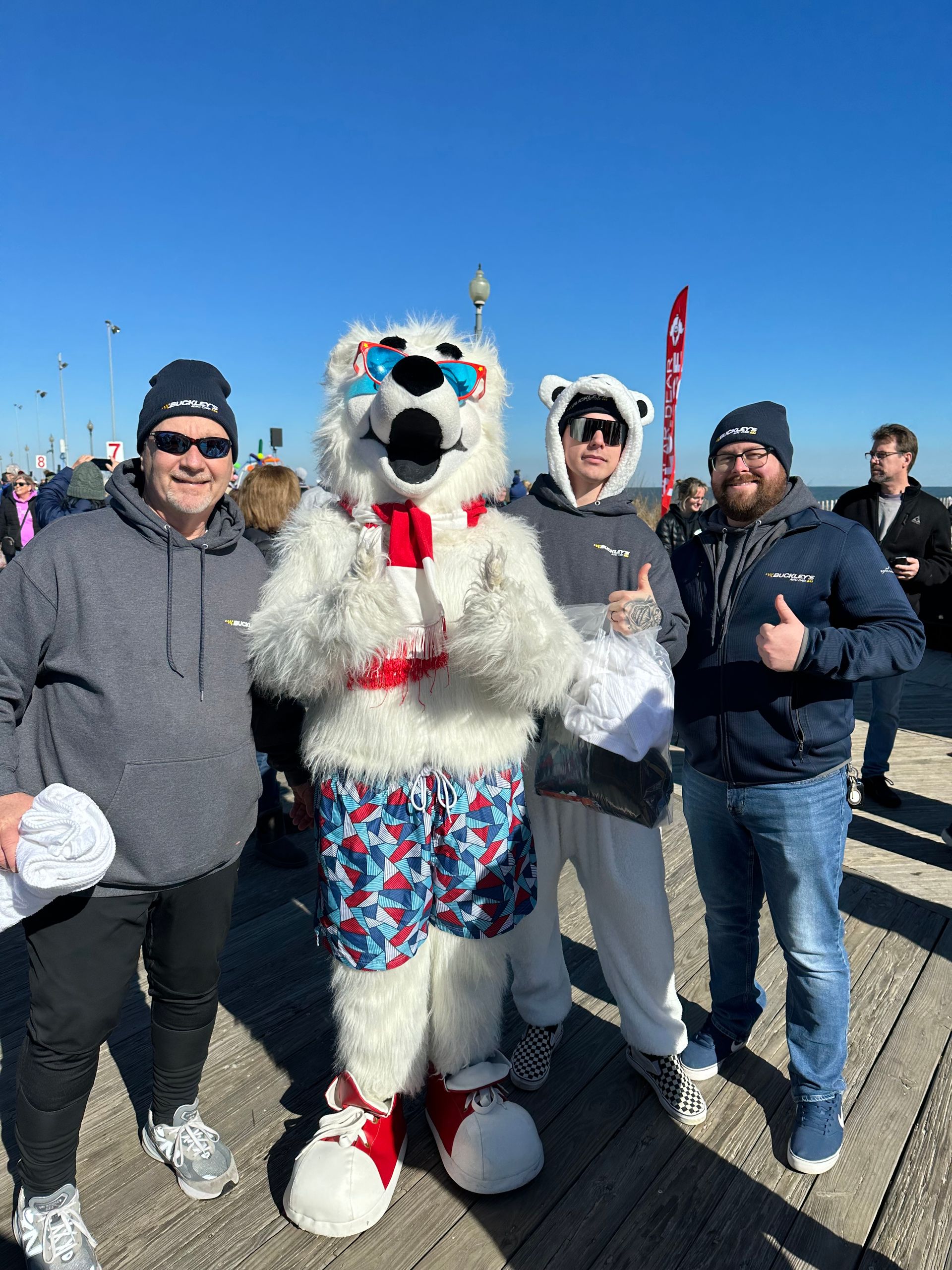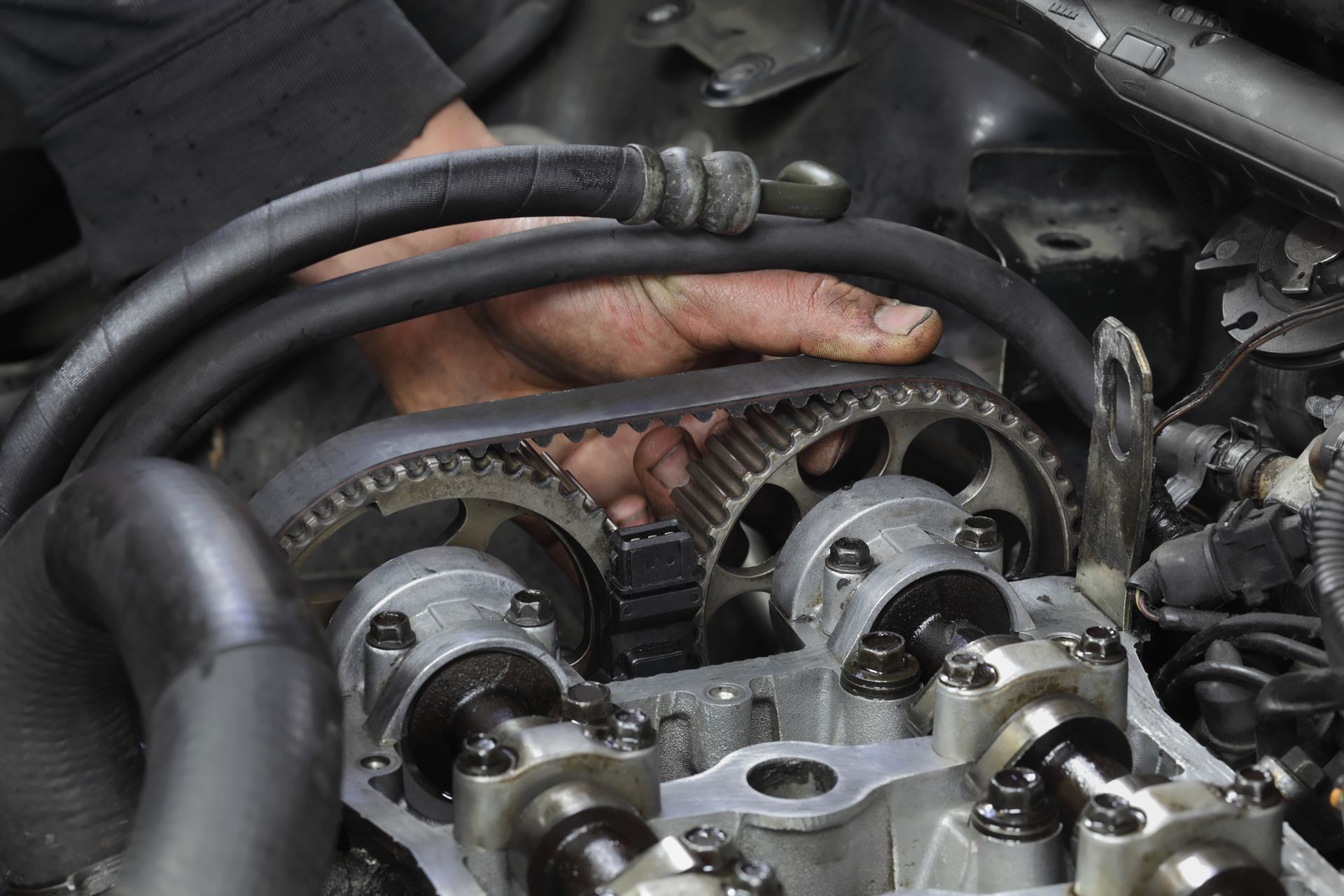What Causes My GM Turbo To Fail?
This is a subtitle for your new post
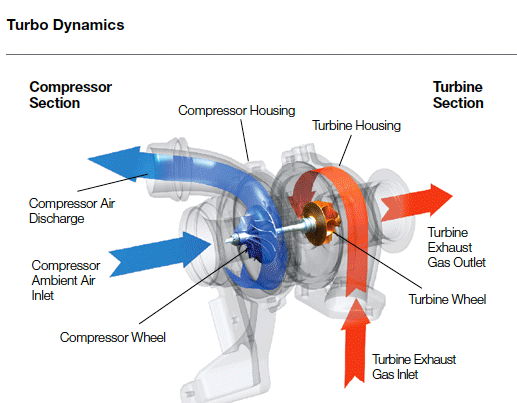
What Causes My Turbo To Fail?
Here at
Buckley's Auto Care Millsboro, we see many turbo failures so I thought I'd give you a few reasons on why they fail and if there's anything you can do to prevent it.
Turbo chargers have been around for quite some time now but they are increasingly being used in today’s newer vehicles. Their purpose is to add horsepower to the engine that would otherwise struggle to power the vehicle. This also allows manufacturers to place a smaller disablement engine in a vehicle which saves them money and help them meet today’s strict EPA emission regulations.
What is a Turbo?
A turbo is a unit that forces extra air into the combustion chamber (engine cylinder) which allows the engine to burn more of the fuel that enters the cylinder. This produces more power compared to a non-turbo charged engine. Burning fuel more efficiently, creates better fuel mileage. A typical turbo unit or system contains the following parts: Turbo, Compressor, Waste Gate, Intercooler, Oil Cooler Lines and sensors.
The turbo uses the exhaust gas to power itself up. These hot exhaust gasses spin the turbo blades at a very high speed. On the other end of the turbo is the air compressor. The compressor takes in fresh air and compresses it before it enters the intake manifold This will create oxygen density. The more dense, cool air that is injected into the combustion chamber, the more horsepower you will obtain. If too much exhaust gas enters the turbo, the waste gate will bleed off the extra. The intercooler helps in cooling down the extremely hot exhaust gasses before they enter the engine. This is to make sure that the air is dense enough to produce maximum results and prevent engine knock.
The turbo unit is lubricated by your engine’s oiling system. It uses the same oil as your engine does and we typically will see two small cooler lines (input/output) that allows oil to circulate around the turbo bearings. Again, good, clean oil is important at all times for proper engine lubrication and protection.
When Turbo Fails,
Turbos will fail due to age, heat fatigue, poor oiling. Remember, they are operating at extreme speeds and in high temperature conditions. This type of environment is not good for too many things, so if you have a turbo charged engine, more than likely you will be replacing it before the 100,000 mile mark.
In our shop, we typically see turbo charger failures of these GM makes and models. General Motors 1.5 or 2.0 liter 4 cylinder engine which is placed in these models: Buick Encore, Buick Envision, Chevy Cruz, Chevy Equinox, Chevy Malibu, Cadillac CTS, GMC Terrain.
Pictured in this article are photos of a severely cracked turbo from a 2015 Buick Encore. You can see the stress cracks caused by heat and fatigue.
If you are experiencing poor performance and mileage for your GM 4 cylinder make and model, call and let our team investigate your turbo’s condition.
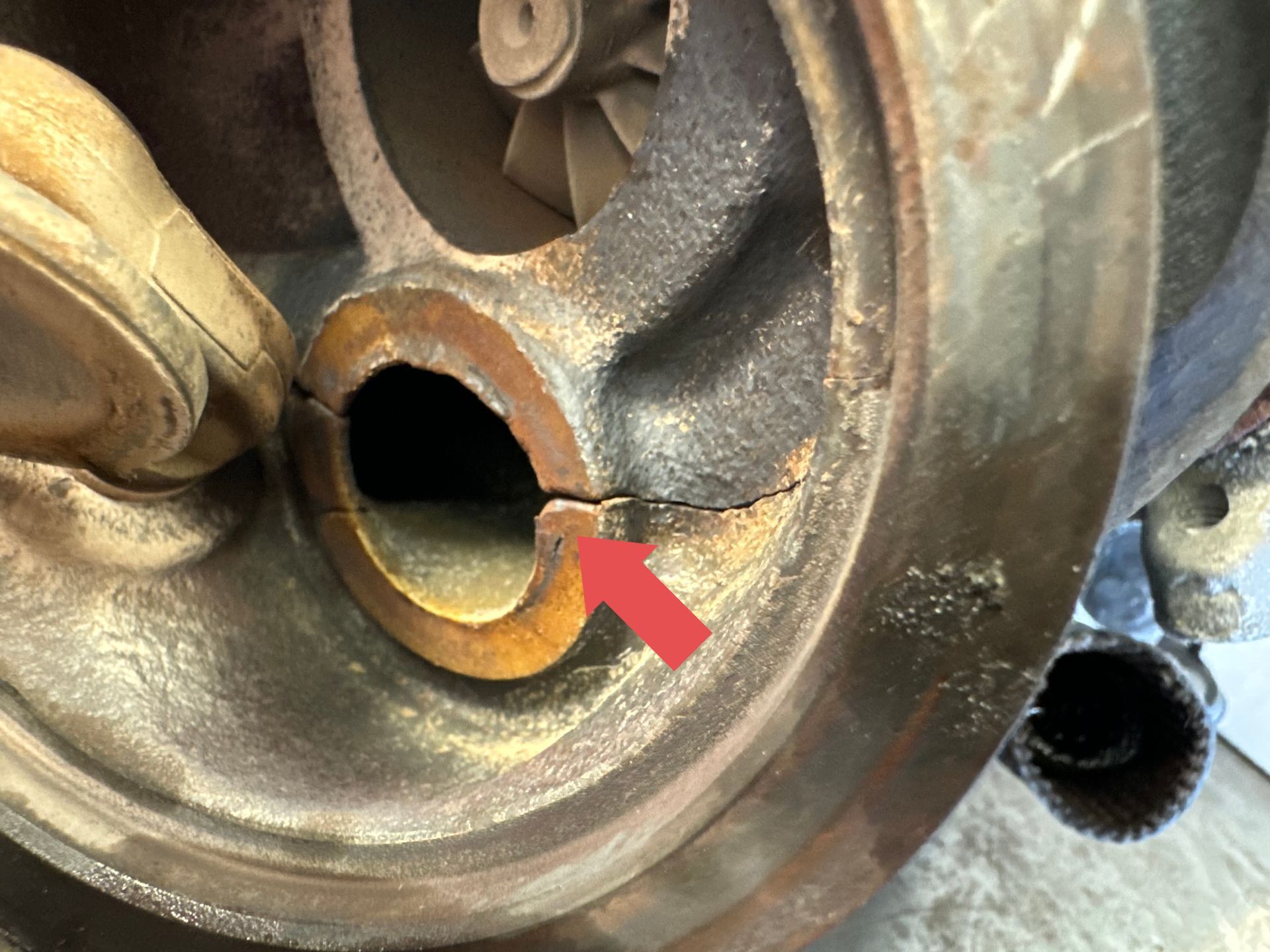
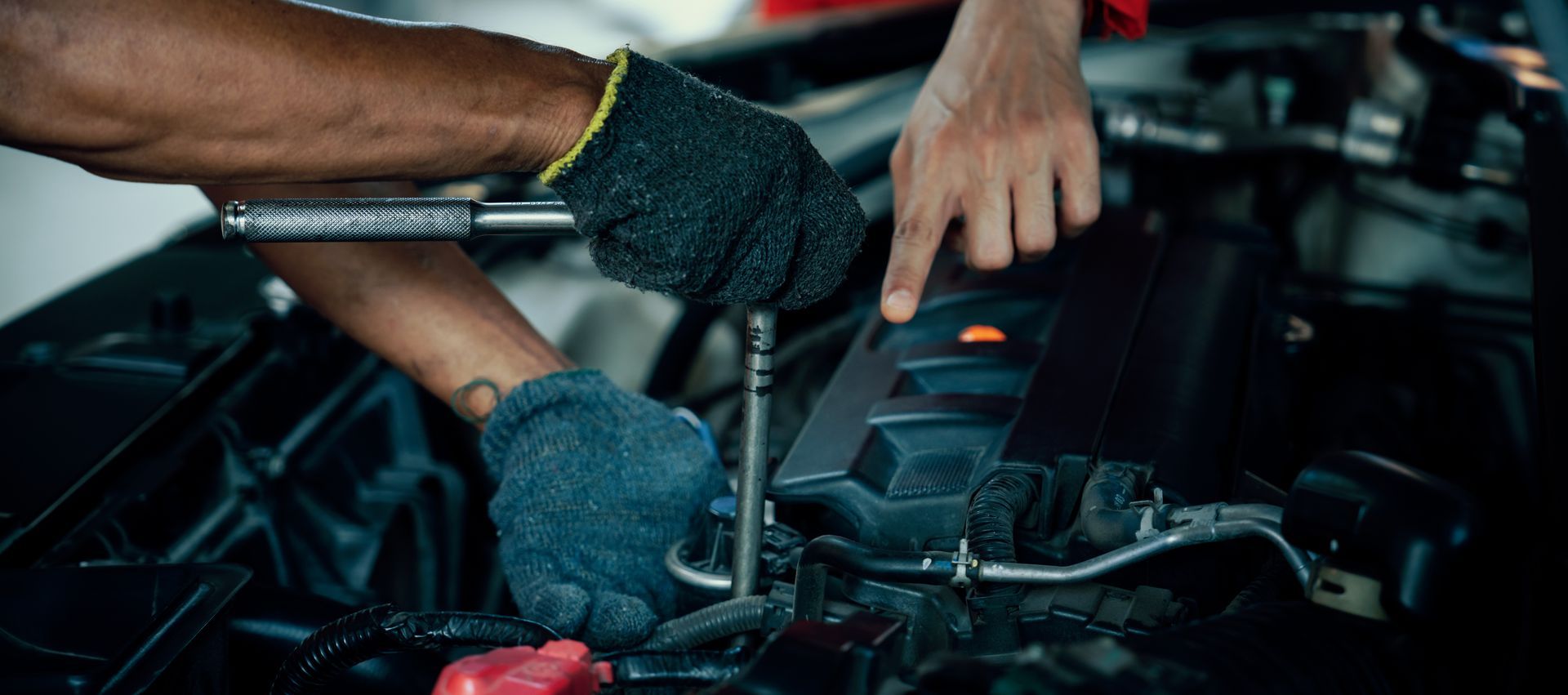
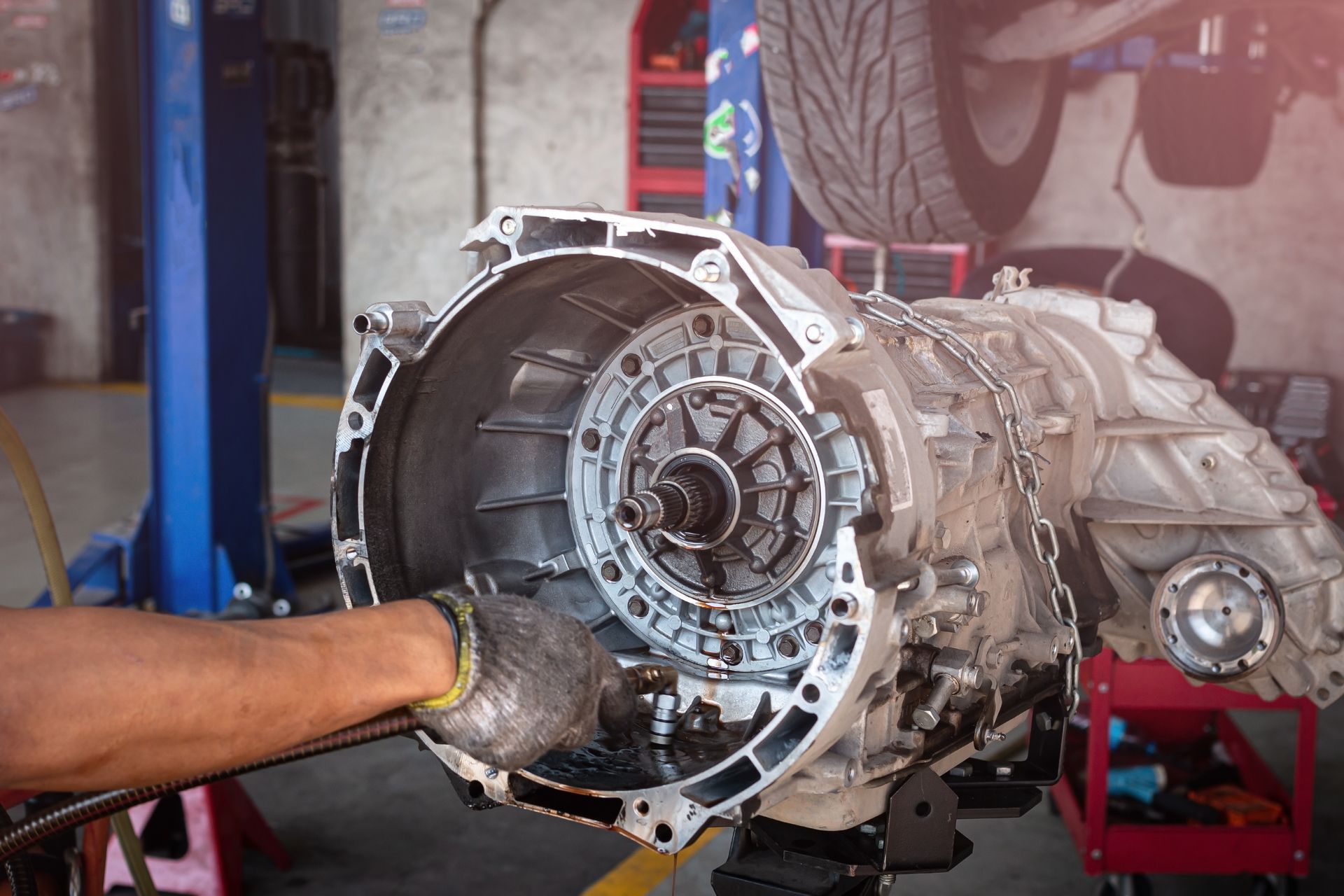
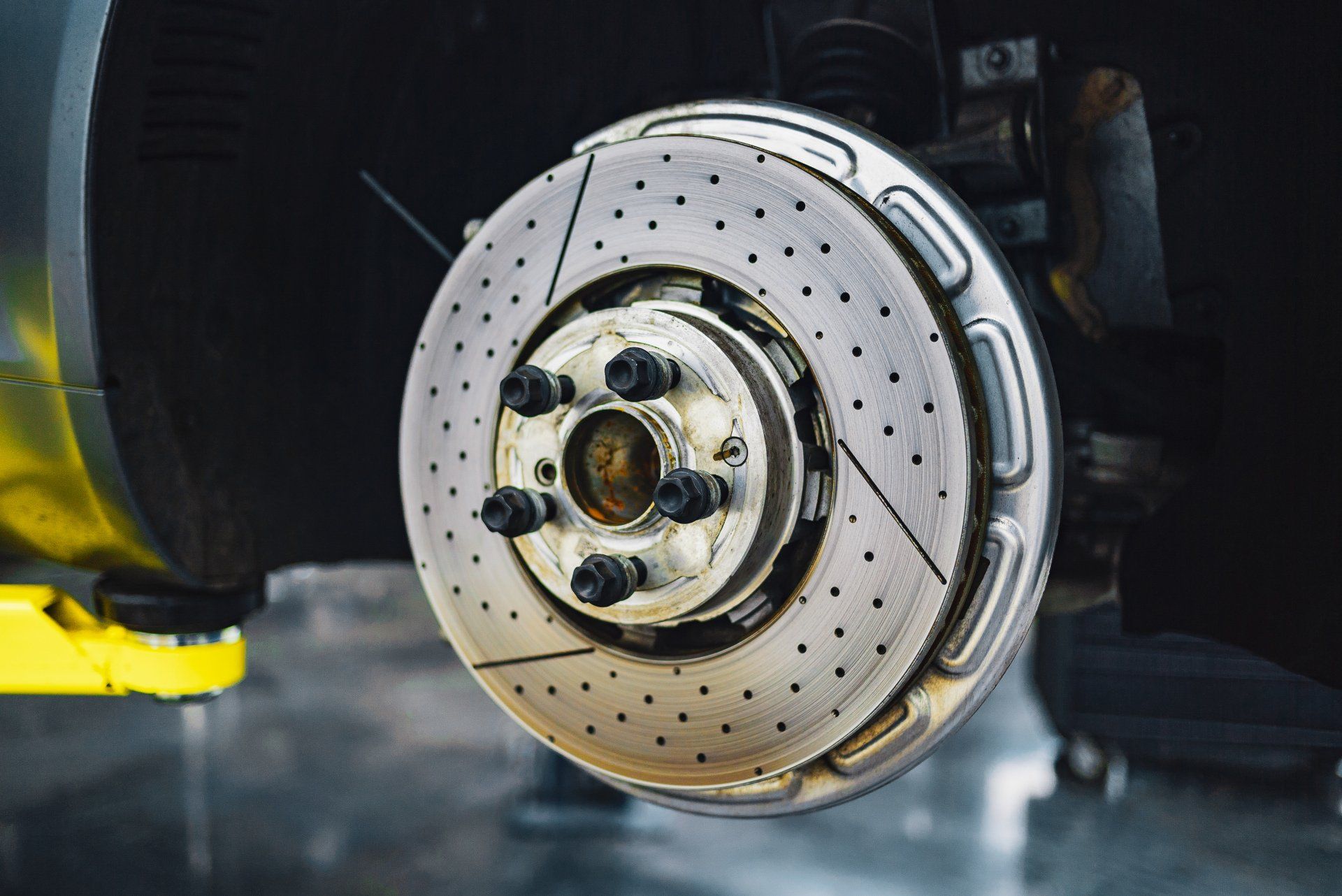

Complete Auto Care
cost-effectively provided.
Areas
Now providing professional services to...









© 2023 Buckley's Auto Care Millsboro. All Rights Reserved | Website managed by
ShopGenie
Follow us
Our Shop
Areas
Now providing professional services to...
Services
List of Services
-
A/C Repair & ServiceA/C Repair & Service A/C Repair & Service
-
Brake Repair & ServiceBrake Repair & Service Brake Repair & Service
-
Check Engine DiagnosticsCheck Engine Diagnostics Check Engine Diagnostics
-
Engine ReplacementEngine Replacement Engine Replacement
-
Fleet Repair & ServicesFleet Repair & Services Fleet Repair & Services
-
Milestone ServiceMilestone Service Milestone Service
-
Oil Change ServicesOil Change Services Oil Change Services
-
Used Car InspectionsUsed Car Inspections Used Car Inspections
-
Wheel AlignmentWheel Alignment Wheel Alignment
© 2023 Buckley's Auto Care Millsboro. All Rights Reserved | Website managed by
ShopGenie
Follow us
Our Shop
28858 Harmons Hill Rd, Millsboro, DE 19966, United States of America
Mon - Fri 7:30 AM - 5:30 PM
Areas
Now providing professional services to...
Services
List of Services
-
A/C Repair & ServiceA/C Repair & Service A/C Repair & Service
-
Brake Repair & ServiceBrake Repair & Service Brake Repair & Service
-
Check Engine DiagnosticsCheck Engine Diagnostics Check Engine Diagnostics
-
Engine ReplacementEngine Replacement Engine Replacement
-
Fleet Repair & ServicesFleet Repair & Services Fleet Repair & Services
-
Milestone ServiceMilestone Service Milestone Service
-
Oil Change ServicesOil Change Services Oil Change Services
-
Used Car InspectionsUsed Car Inspections Used Car Inspections
-
Wheel AlignmentWheel Alignment Wheel Alignment
© 2023 Buckley's Auto Care Millsboro. All Rights Reserved | Website managed by
ShopGenie








